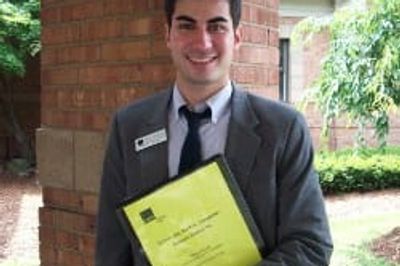Battering and abuse take place in all homes, not just heterosexual ones. But often members of the GLBT community have trouble finding help because of the extra hurdles placed in their path by homophobia and a lack of understanding.
To combat that, the YWCA of Nashville & Middle Tennessee recently held a training seminar for domestic-violence counselors and other professionals that focused on the special needs of the GLBT community.
“We are talking to service providers to help them understand the prevalence of GLBT domestic violence, and the unique experiences of those survivors,” said Chai Jindasurat, outreach and education coordinator for the Kansas City Anti-Violence Project, who led the workshop. “There are extra variables and challenges to taking services to these people, not the least of which is oppression. We are showing some tools for how to interact with these victims, and learning the cultural competency to best serve them when they call for help.”
The Kansas City Anti-Violence Project is a local branch of the Anti-Violence Project out of San Francisco, which was formed in 1979 and now is affiliated with the National Coalition of Anti-Violence Programs in New York. Although the organization and its chapters have evolved over the years, the need is as strong now as it was then, Jindasurat said.
“Back then the sodomy laws were not repealed, violence was prevalent and nobody was taking it seriously,” he said. “Our community had to have its own response.”
The Kansas City group came about when a murder-suicide in 2003 showed its founder the most horrible aspects of partner abuse.
“He knew this couple, he went to church with them, and this put the issue right in his face,” Jindasurat said. “He then did some research, and began to wonder where these people could go. A gay man can’t get into a shelter since they are for women, and what about a transgender person? What about bisexuals? So we were formed in partnership with the national organization so we could serve this community.”
For its part, the YWCA was eager to expand its knowledge base in this area, and would support any efforts to increase these services, said Pamela Sessions, vice president of programming.
“We are always looking for opportunities to increase and expand the clients we serve,” Sessions said. “We thought this program would be a great fit for us, because the needs are there.”
Noting that Nashville is much like Kansas City in terms of its GLBT population and size, Jindasurat says he seems the definite potential for an AVP outpost here.
“We do community education and provide victim services, and I think that seed would be very easy to plant locally,” he said. “I hope that people start thinking about the possibility of creating a project here — the people here are very comfortable talking about these issues, and I think there’s already a lot of knowledge. There is a strong community here, and if people get empowered they could make this happen.”
